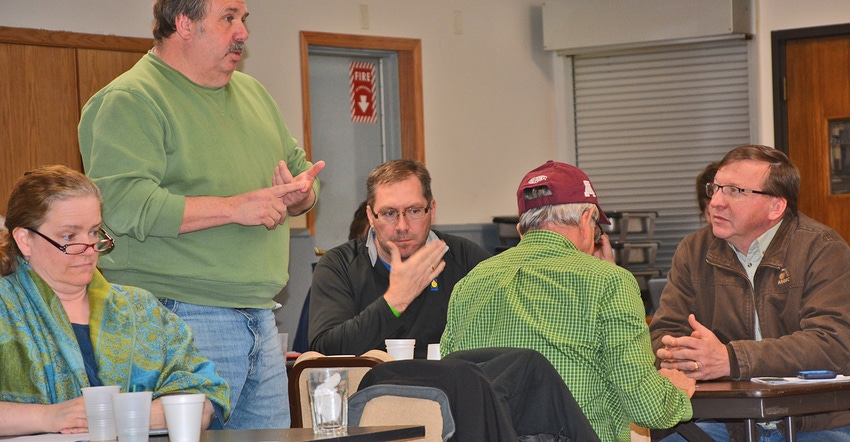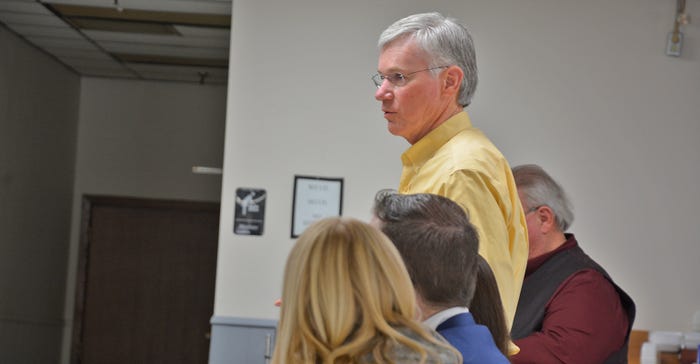
Hundreds of farmers let their voices be heard at several Minnesota Farmers Union “Rural Voices” discussions held across the state in late March and early April.

Gary Wertish

MFU president Gary Wertish was in attendance at each meeting, as was a rotating panel of national, state and local officials and ag leaders.
At the listening session, held April 9 in Willmar, Minn., at the American Legion, Wertish was joined by Matthew Wohlman, Minnesota Department of Agriculture deputy commissioner; Nancy Daubenberger, Minnesota Department of Transportation assistant commissioner; and Patty Edelburg, National Farmers Union vice president.
Here are several comments on topics offered by farmers and rural residents who attended the listening session.
Current farm crisis. “I worked with a lot of farmers in the 1980s,” said Harmon Wilts, Kerkhoven, Minn. “I’d say this is the second-worst farm crisis I’ve seen.” He said the problems he sees now are that farmers are borrowing more and burning through equity.
Farm bill. Some attendees spoke about the farm bill and voiced concern about future funding. Grant Herfindahl, a former USDA Farm Service Agency official, said that a crisis is coming in terms of not enough federal employees being in local offices to help farmers with government programs.
“We need people in place in these jobs,” he said. “We need to hire more farm service managers. The federal farm program saved us in the 1950s, the ’70s and the ’80s, and it will again.”
Transportation and roads. A Stearns County farmer expressed concern about the ability to fertilize his fields when there are road restrictions limiting heavy equipment.
“The neighbor got a ticket for hauling his spreader on the road,” he said.
Impact from Department of Natural Resources rulings and actions. A couple of farmers voiced concerns over DNR’s attempts to control chronic wasting disease in deer and elk. One farmer said he is concerned about a proposal facing lawmakers that would require a farmer to install fencing around his farm to control CWD if the disease was found your area. A second farmer was concerned about another bill that outlines how the DNR could seize elk if certain rules were not met.
Broadband. “Broadband is a huge economic development issue in rural Minnesota,” said Donna Boonstra from Kandiyohi County, Minn. Without it, farmers who use precision agriculture can’t get field maps. Doctors who have homes along area lakes drive to the local fast-food restaurant and sit in the parking lot to access medical records via a wireless internet connection.
Another attendee said he had no broadband when he lived in Traverse County. He moved 4 miles away into Big Stone County, where he now has access to broadband.
Additional comments gathered covered health care, the high cost of college, solar energy investment and property taxes for funding schools. Wertish assured the group that their comments, which were being recorded, would be shared with policymakers.
“It’s not just ag we advocate,” Wertish concluded. “It’s rural communities. We’re in this all together.”
About the Author(s)
You May Also Like






